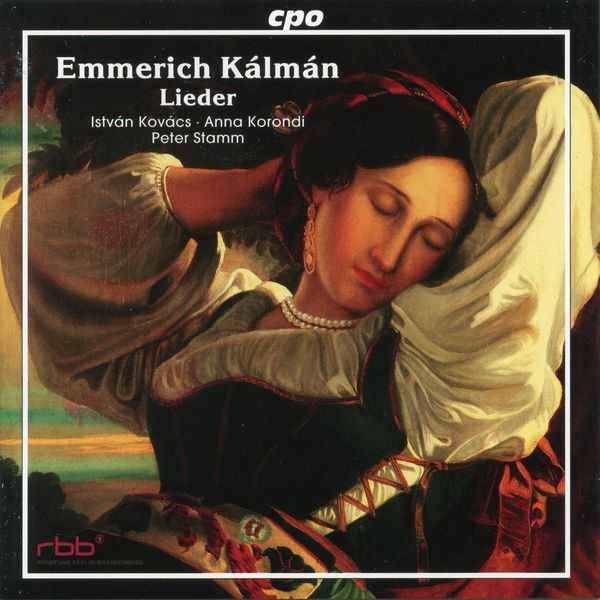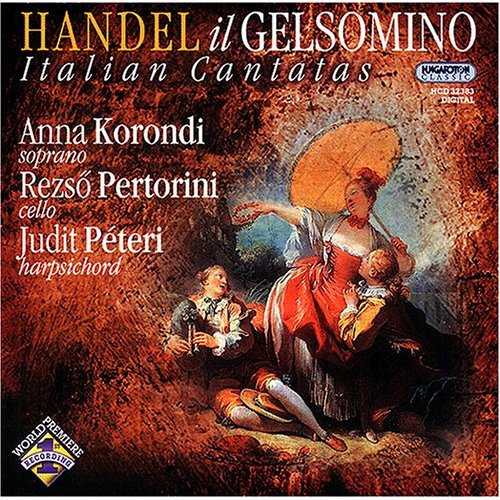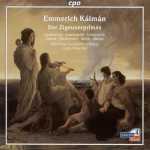
Composer: Emmerich Kálmán
Performer: Anna Korondi, István Kovács, Peter Stamm
Format: FLAC (tracks)
Label: CPO
Catalogue: 7770592
Release: 2005
Size: 251 MB
Recovery: +3%
Scan: cover
01. Összel születtem
02. A hol te jársz
03. Örök mámor
04. Egyedül
05. Bujdokolva járok
06. Virágének
07. Hajdu tánc
08. Nincsen apám
09. Öszi estén
10. Tüzet rak a német tábor
11. Székely Anna
12. Sávári nóta
13. Reverie
14. Intermezzo (1)
15. Scherzo
16. Intermezzo (2)
17. Emlékezés
18. Kurucok tábori dala
19. Sólyom dal
20. Tréfás bordal
21. Nem tudom én
22. Nagy Lajos karabeli banderista nótája
23. Kinyillott az idö
24. Fülemüle nóta
The German label CPO has made a specialty of unearthing long-buried music, but few of its releases venture into realms as obscure as that occupied by this disc of music by Emmerich Kálmán, known well enough for his Viennese operettas of the early part of the last century but hardly at all for the serious music — 20 songs and four piano pieces — included on this album. The composer came from Hungary, and the original form of his name was Imre Kálman (or, properly, Kálmán Imre). He was trained as a serious composer in Budapest, and this music comes from the early part of his career, before he turned to operetta. All the songs are in Hungarian.
The incredibly detailed liner notes brim with background information but have little to say about the music. One of the few musical judgments made is that Kálmán’s art songs are far removed from the world of operetta, but to nonspecialist ears the distance might not seem so great. The vast majority of the songs have a gloomy atmosphere, but it is the lyrical, rosy-cheeked Heine gloom of Schumann, not the world-weariness of turn-of-the-century Vienna. Though there is little use of folk rhythms or forms, there’s an indefinable Hungarian tinge to the music nonetheless; it is not clearly derivative of any other music despite Kálmán’s youth and its comparatively unadventuresome harmonic palette. Vocal performers looking for a “what the heck was that?” recital or encore item for an Eastern European program should get to know this disc; Kálmán’s songs are sad, affecting, and straightforward without being simple. And they certainly bespeak a future operetta composer in that the four piano pieces are much less distinctive. Soprano Anna Korondi and baritone Istvan Kovács divide the songs, and neither makes the mistake of overpowering them. An extremely offbeat but highly listenable selection.



